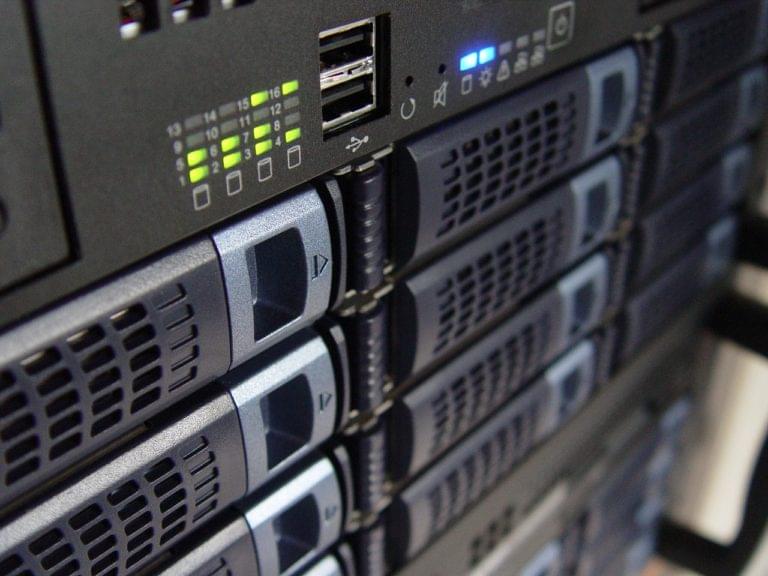Why Self-Hosting Your Website Is a Bad Idea

Key Takeaways
- Self-hosting a website can present several challenges, including barriers to starting due to ISP restrictions, the need for a static IP address, and potential service shutdowns if hosting from a home connection.
- Hosting your own website increases security risks, exposing your network to potential attacks, which could lead to significant security issues if not properly managed.
- Self-hosting is less reliable, with potential downtime and service outages due to factors beyond your control, such as power cuts, equipment damage, or ISP issues.
- The costs of self-hosting can be high, including the need for a static IP, a better internet connection, necessary equipment and software, backup services, and potential consultancy fees.
This article is part of a series created in partnership with SiteGround. Thank you for supporting the partners who make SitePoint possible.
There are many situations in which you might decide that self-hosting your website is the way to go. You may be a freelancer, an entrepreneur, or be running a personal or even non-profit site. You may wish to host the site on an always-on PC in your basement, or on a small server in your workplace.
Regardless of the situation, on-premise hosting is usually a bad idea. In this post, you’ll have some reasons for that explained, in the hopes of providing useful information or warnings to both business decision makers as well as developers who are inexperienced with the “operations” side of the Internet – in this case, hosting websites.
Self-Hosting Has More Barriers to Starting
Depending on your Internet Service Provider (ISP) and your situation (whether you have a business class service package or a residential one), you may run into issues with your ISP blocking port 80 — the port to which most Internet traffic defaults. You may also be issued warnings or even have your service shut down if you host websites on-premise. This is most common when you are trying to host a site from your home connection and the ISP prefers that if you wish to do so, you purchase a business Internet package that is perhaps thrice as expensive.
However, some ISPs can still provide limitations even to the business class packages that can thwart your attempts to get your website up and running. Additionally, you will also need a static IP address, which may be an added cost, depending on how your ISP plans work. Most home (and some business) connections use dynamic IP addresses, which means that they change from time to time. If your IP address, the way by which your network can be found online, sometimes changes, you will have no easy, reliable way to point users who come to yourdomain.com to your on-premise hosting setup.
Self-Hosting Your Website Can Create Security Risks
There are security risks in anything you do on the Internet, of course, but hosting a website on your network opens you up to even more, especially if you’re not certain of what you’re doing. Websites big and small are subjected to denial of service attacks and scripting attacks, sometimes at mind-blowing volume. Your website can be for a single freelancer, a small startup, a two hundred person small company, or an enterprise outfit, and they all will attract attacks — some of which may even be automated and not even take into account the content of the site in question.
Hosting a web server on your network, if you’re not careful, may open your network up to a Pandora’s Box of security troubles that you’d never have to deal with if you hosted your website with a cloud service provider rather than on premise. Do you know enough about web servers (and, if your web server is Linux, do you know the command line)?
Self-Hosting Your Website is Less Reliable
Another point to consider about self-hosting your website is that you have less options for dealing with things like downtime and service outages.
If your power goes out in the typical residential or small business location, you have no control over the situation that follows. How long will it be out? Minutes? Hours? Days, even? It depends on the circumstance. What if a child touches or damages something they shouldn’t, if it’s in your home? What about in the office, if a careless employee spills a drink, or pulls the wrong cord?
Even if you secure your website on a server in a server cage in a dedicated room in your office, you can still run into random events such as a plumbing leak or an Internet service outage. If your bandwidth is exceeding the allotted amount, your ISP may throttle or shut down your connection. Many of these things are entirely out of your control.
All of these points are mitigated by using a hosting service which uses a professional data center to house its servers. They have multiple power and Internet providers, generators, cooling, security, fire suppression systems, offsite backups, and even redundancy to other locations. It’s more than you can possibly provide in-house if you’re the average small business or individual.
Considering the Costs of Self-Hosting Your Website
Let’s take a few looks at the costs of self-hosting your website:
- Static IP – You’ll need a static IP address in order for people to properly find your web server when they enter your site’s address into their browser. That typically costs extra on your Internet bill.
- Better Internet Connection – You also may want a better Internet connection, especially if your website begins to gain in traffic. This, too, will cost you.
- Equipment – You also need equipment to put the website on. A server, or a computer whose primary (or only) task is to function as a web server. If you are using Windows, you’ll need an operating system license and perhaps other software. You may also need extra peripheral equipment – such as a switch or router — that you might not have needed otherwise.
- Backups – You’ll need to pay for an external cloud backup service, if at all possible, and you’ll also need the equipment, software, and time spent on performing local backups as well. You want a backup copy of your data both on-site and off-site, so that you can use the local copy to do quick recoveries, and the off-site copy in a disaster. All of this will also cost money, and the time to set it up and test your backups occasionally to ensure the system is working.
- Paying Consultants – Finally, you should assume you’ll end up needing to pay consultants. Your business may not have the expertise locally to deal with certain networking or programming issues, and if you’re a solo shop, even more so. You might as well chalk this up as a necessity, and have an emergency budget to deal with it when you need it.
Conclusions
Why are you considering this?
If it’s to retain control of things (you don’t trust third parties to host your site) consider the technological and safety concerns here and ask yourself who is in a better position to safely and effectively deliver your website content to visitors – your business office, or a hosting company whose entire purpose is to do this?
Is it to save money? Take a look at the incredibly affordable and full-featured hosting offerings with reputable hosts such as our partner, SiteGround. They solve all of these issues for you without a huge investment. If your business requires a website (and which one doesn’t?) and cannot afford at least a reliable hosting service, perhaps the business itself is in question. What does your business have in its budget that could be replaced (a few dollars a month) in order to pay for the monthly hosting bill? Think about it.
Have any experiences, good or bad, with self-hosting your website? Let us know in the comments.
Frequently Asked Questions (FAQs) about Self-Hosting Your Website
What are the potential security risks of self-hosting a website?
Self-hosting a website can expose you to several security risks. These include susceptibility to hacking attempts, malware, and DDoS attacks. Without the proper security measures in place, your website and data could be compromised. It’s crucial to have a robust security system, including firewalls, intrusion detection systems, and regular updates to your server software to mitigate these risks.
How can I ensure my self-hosted website is secure?
To secure your self-hosted website, you should regularly update your server software and applications, use strong passwords, and install a reliable security system. Additionally, you should regularly back up your data and consider using encryption for sensitive information. It’s also advisable to monitor your server for any unusual activity.
What are the benefits of self-hosting a website?
Self-hosting a website gives you complete control over your server. This means you can customize your server to meet your specific needs, manage your own data, and avoid the limitations imposed by shared hosting. Additionally, self-hosting can be more cost-effective in the long run, especially for larger websites.
What are the drawbacks of self-hosting a website?
While self-hosting offers many benefits, it also has its drawbacks. These include the need for technical expertise to manage and maintain the server, the responsibility for security, and the potential for higher upfront costs. Additionally, if your website experiences high traffic, your server may struggle to cope, leading to slower load times or downtime.
How much technical knowledge do I need to self-host a website?
Self-hosting a website requires a significant amount of technical knowledge. You’ll need to understand how to set up and configure a server, manage security, and troubleshoot any issues that arise. If you’re not comfortable with these tasks, you may want to consider hiring a professional or using a managed hosting service.
Can I self-host a website from my home computer?
While it’s technically possible to host a website from your home computer, it’s generally not recommended. Home computers are not designed to handle the demands of hosting a website, especially one with high traffic. Additionally, home internet connections are often not reliable or fast enough to provide a good user experience.
What type of internet connection do I need to self-host a website?
To self-host a website, you’ll need a reliable, high-speed internet connection. This is because your server needs to be able to handle multiple connections at once, especially if your website has high traffic. Additionally, you’ll need a static IP address, as dynamic IP addresses can cause issues with accessibility and SEO.
What equipment do I need to self-host a website?
To self-host a website, you’ll need a dedicated server or a computer that can function as a server. This should have a powerful processor, plenty of RAM, and ample storage space. You’ll also need a reliable, high-speed internet connection and a static IP address.
How can I handle high traffic on my self-hosted website?
If your self-hosted website experiences high traffic, you’ll need to ensure your server can handle the load. This may involve upgrading your server hardware, optimizing your website for performance, or using a content delivery network (CDN) to distribute the load.
What is the cost of self-hosting a website?
The cost of self-hosting a website can vary widely, depending on your specific needs. Costs can include the server hardware, internet connection, electricity, and any software or security systems you need. Additionally, you may need to factor in the cost of your time or the cost of hiring a professional to manage the server.
Jeff works for a startup as a technical writer, does contract writing and web development, and loves tinkering with new projects and ideas. In addition to being glued to a computer for a good part of his day, Jeff is also a husband, father, tech nerd, book nerd, and gamer.





